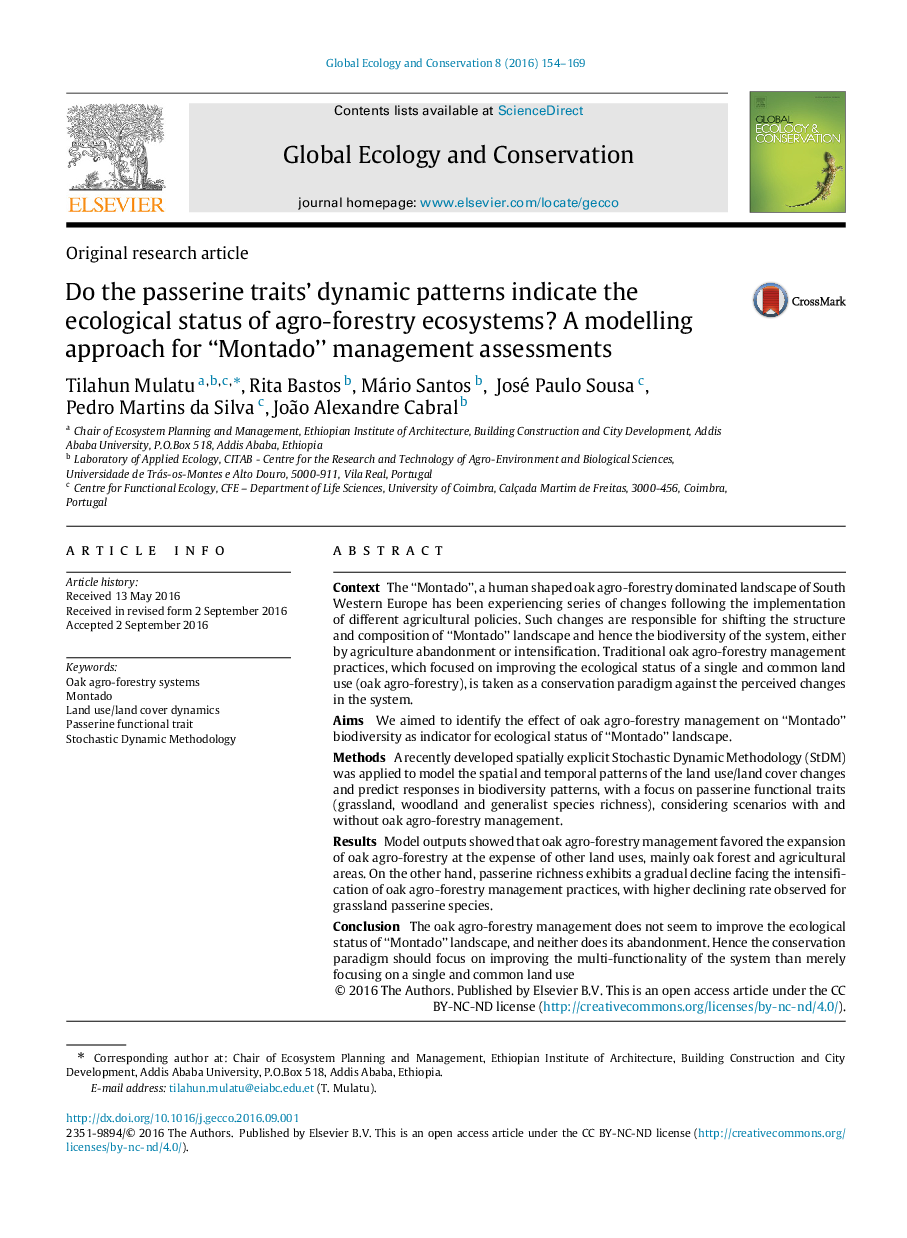| Article ID | Journal | Published Year | Pages | File Type |
|---|---|---|---|---|
| 4379442 | Global Ecology and Conservation | 2016 | 16 Pages |
ContextThe “Montado”, a human shaped oak agro-forestry dominated landscape of South Western Europe has been experiencing series of changes following the implementation of different agricultural policies. Such changes are responsible for shifting the structure and composition of “Montado” landscape and hence the biodiversity of the system, either by agriculture abandonment or intensification. Traditional oak agro-forestry management practices, which focused on improving the ecological status of a single and common land use (oak agro-forestry), is taken as a conservation paradigm against the perceived changes in the system.AimsWe aimed to identify the effect of oak agro-forestry management on “Montado” biodiversity as indicator for ecological status of “Montado” landscape.MethodsA recently developed spatially explicit Stochastic Dynamic Methodology (StDM) was applied to model the spatial and temporal patterns of the land use/land cover changes and predict responses in biodiversity patterns, with a focus on passerine functional traits (grassland, woodland and generalist species richness), considering scenarios with and without oak agro-forestry management.ResultsModel outputs showed that oak agro-forestry management favored the expansion of oak agro-forestry at the expense of other land uses, mainly oak forest and agricultural areas. On the other hand, passerine richness exhibits a gradual decline facing the intensification of oak agro-forestry management practices, with higher declining rate observed for grassland passerine species.ConclusionThe oak agro-forestry management does not seem to improve the ecological status of “Montado” landscape, and neither does its abandonment. Hence the conservation paradigm should focus on improving the multi-functionality of the system than merely focusing on a single and common land use
